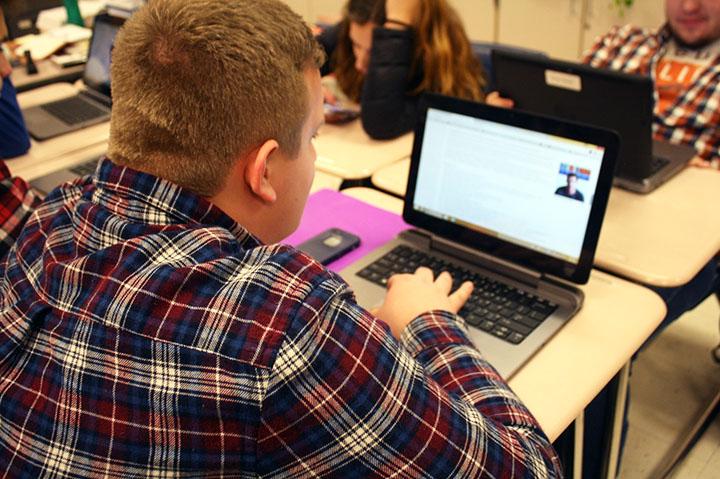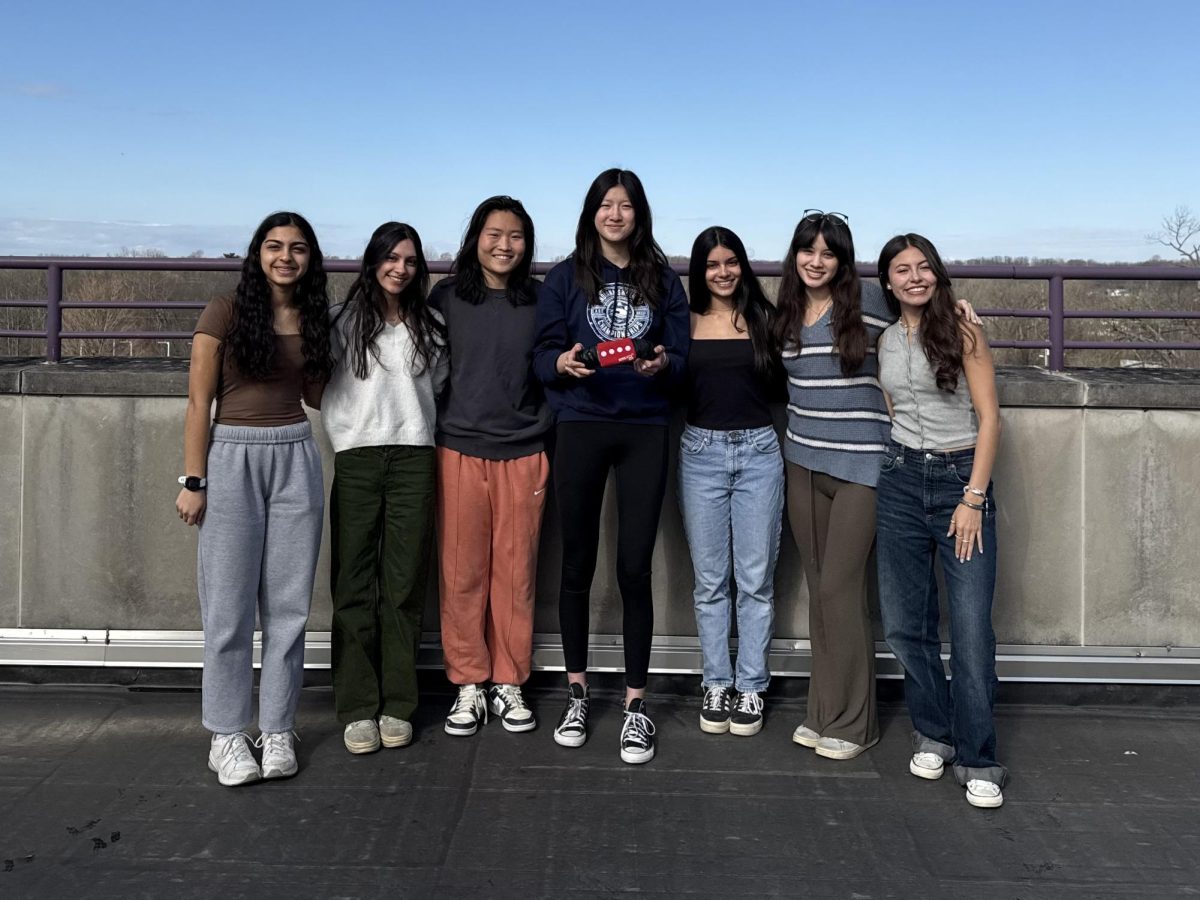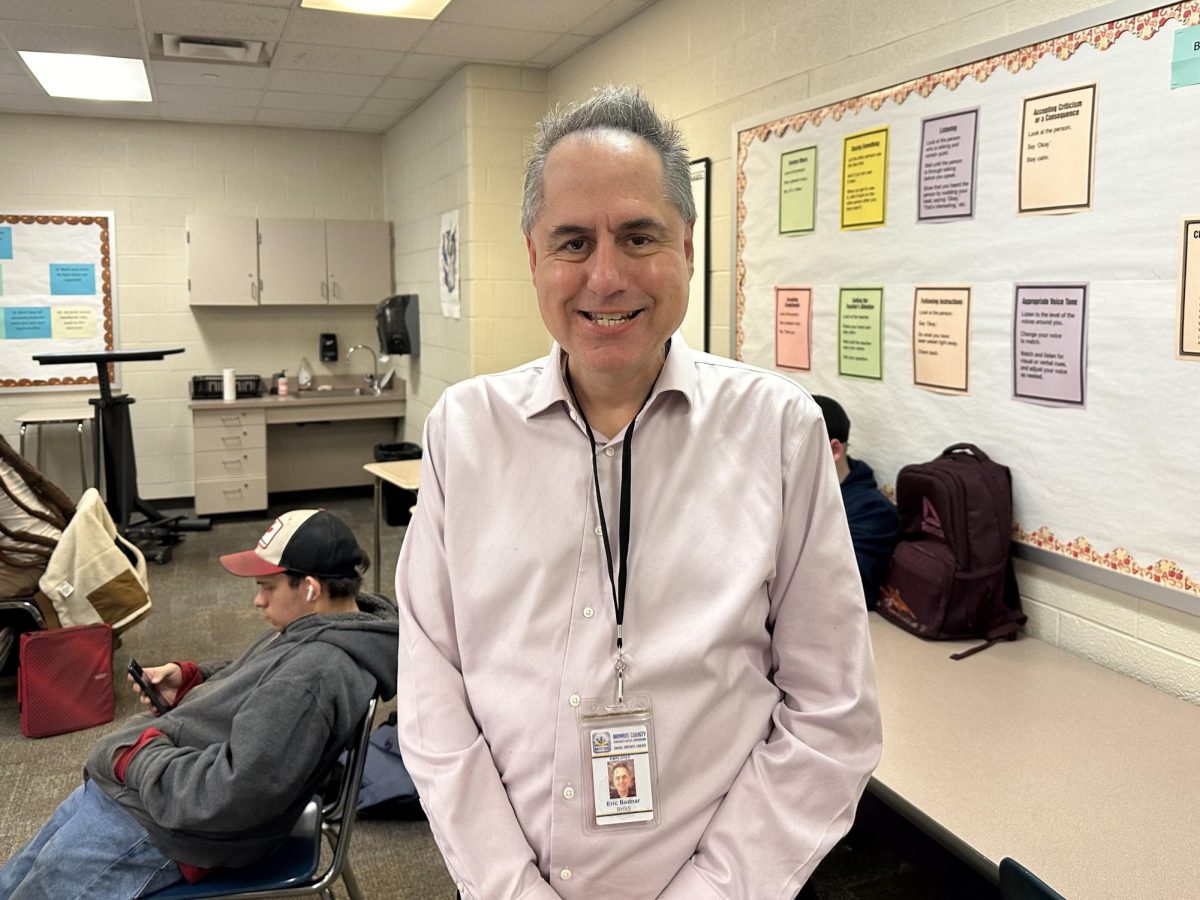In a world where smart phones and laptops are more accessible than ever, it can be hard to discern what you’re putting out on the Internet, and what may come back to haunt you.
Last school year, Monroe County Community School Corporation adopted a “Digital Citizenship” program from Common Sense Media to be taught by teachers at all schools in the district. South students will recognize the digital citizenship program from the lessons given during the student resource period.
This program is part of a initiative to educate students about the Internet and the impact they can have on the world wide web. The Common Sense Media lessons contain important information, such as programming on cyber bullying, hate speech and ways to stay safe on the Internet.
South’s digital learning coach, Nick Hargett, is quick to note how important these lessons can be for students. Hargett, one of five digital learning coaches across the district, believes that Common Sense Media does a good job of educating students about using their devices through a variety of services in their curriculum.
“We knew there was a gap because obviously every student has a device, and every student can connect their phone or computer to our network,” Hargett said. “We know you can’t just turn kids loose without any tools to navigate the Internet, so we just wanted to better inform students about what they’re putting out there.”
Some students have complained about the information and the way the lessons are conducted.
“I feel like [digital citizenship] is just common sense,” senior Ryan Wedemeyer said. “In high school you should just know all of that anyway. Especially because we are living in a technology based world, at a younger age kids need to learn that stuff.”
While the Common Sense Media lessons are done at elementary and middle school levels, Hargett understands claims of students who find the courses uninteresting. To those who do feel as if the lessons can be repetitive or uninteresting, Hargett hopes that they are making the right choices when online.
“I feel like most of us are connected to the Internet all the time, whether it’s for communication tools or learning, and there’s a lot going on there. Sometimes I think we take for granted how connected we are and what the implications of that are,” Hargett said.
With the rise of technology in the 21st century, teaching students about digital citizenship is in many ways becoming just as important as learning about economics or government (both required classes students must take to graduate) especially when kids are getting their hands on smartphones and using them constantly. With this in mind, it’s fair to say all students regardless of age can benefit from learning about the best way to conduct themselves on the Internet, especially early on in their primary and secondary schooling careers.
“I think it’s important to be educated on how our data is used and on ethical ways to use those services. That’s the biggest thing with why we want to share it and want students and teachers to be aware of it,” Hargett said.
Hargett knows that since South provides its students with personal laptop devices, some students can be inexperienced and unaware of how to conduct themselves on the Internet, but he hopes that these mandated digital citizenship presentations educate teachers and students on the best way to use technology.
“[The Internet] is not a scary place like some people make it out to be, but we just want students to be informed.”



